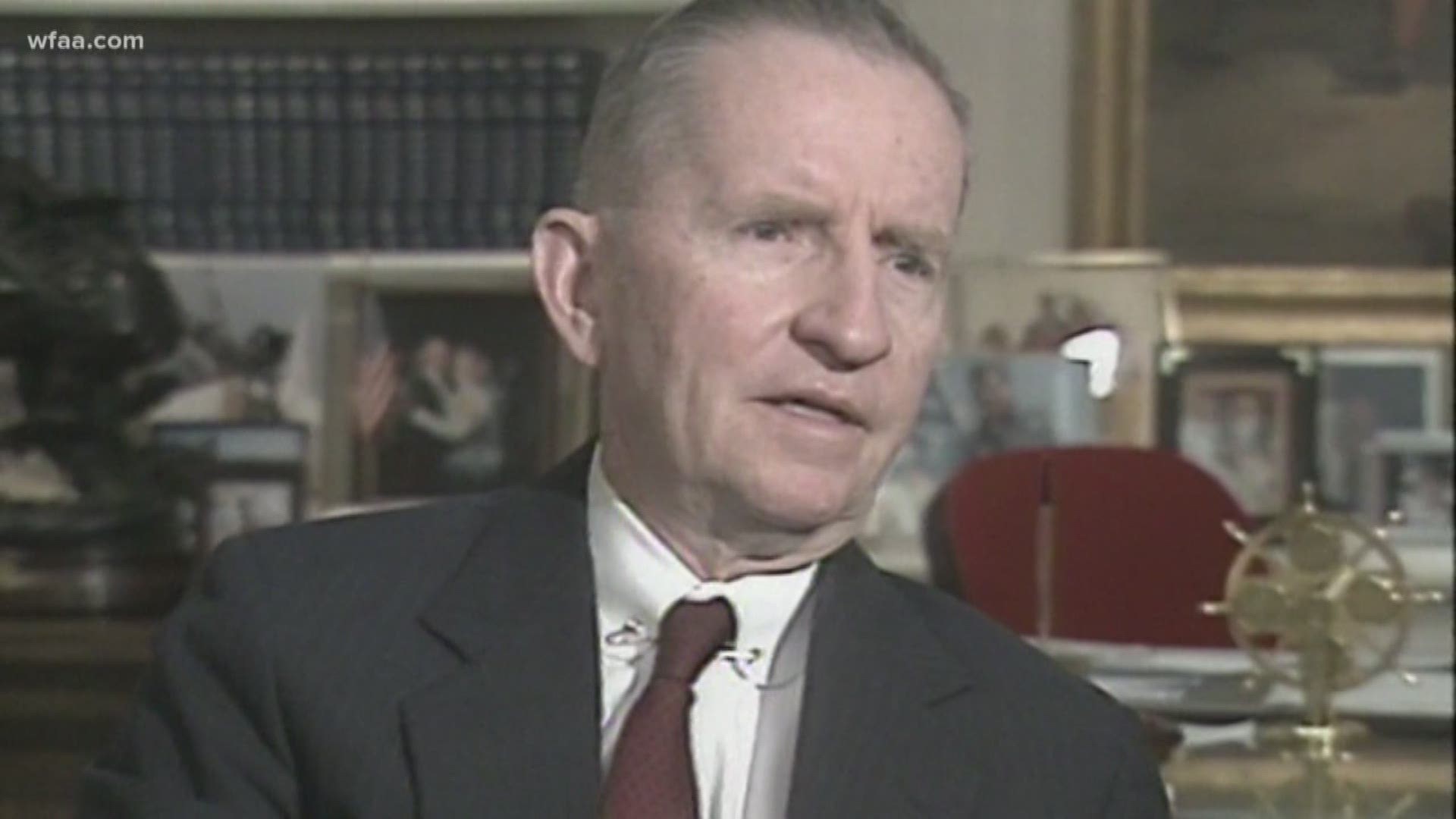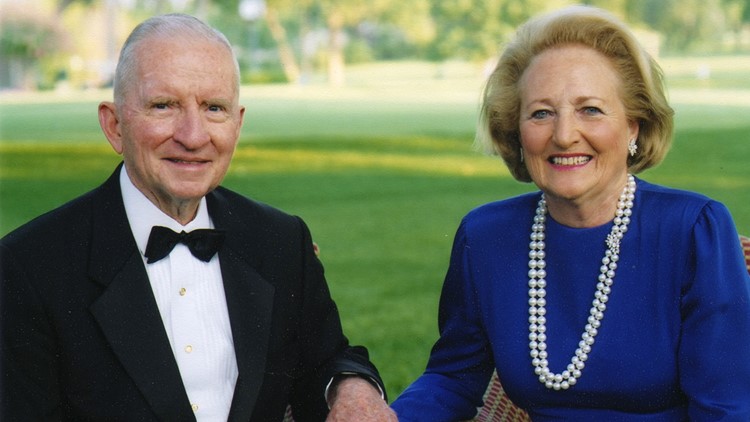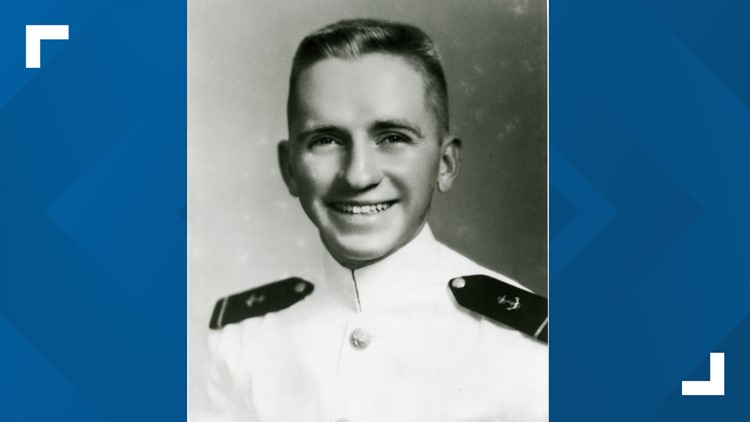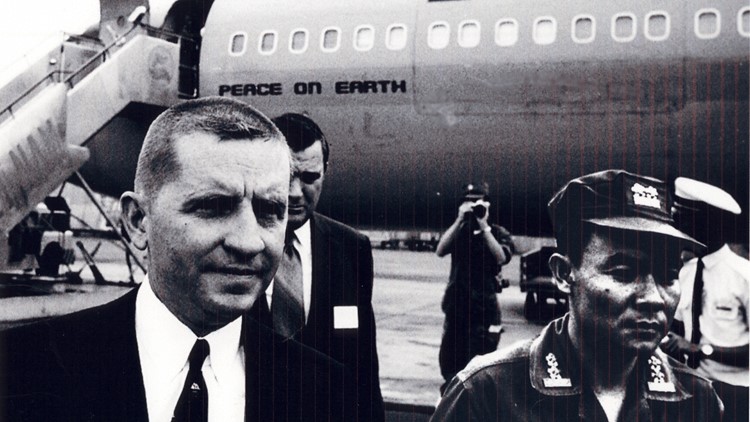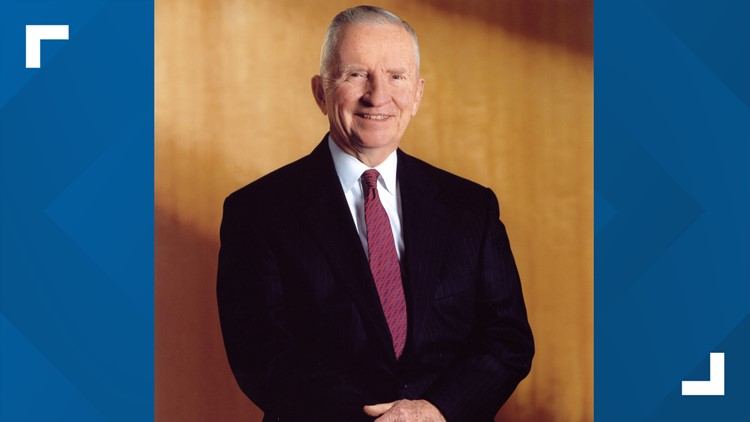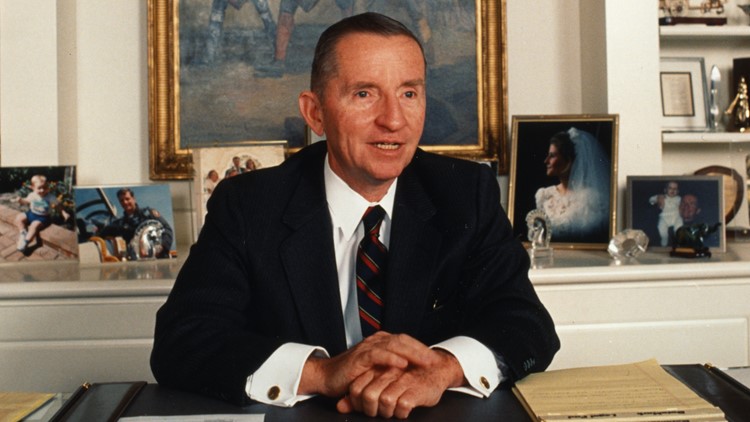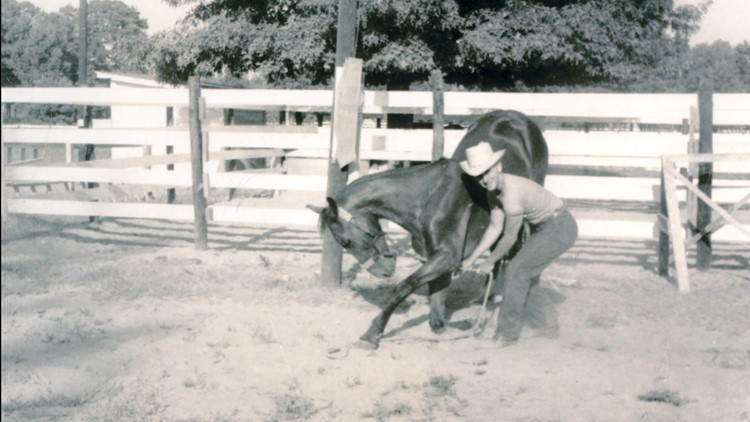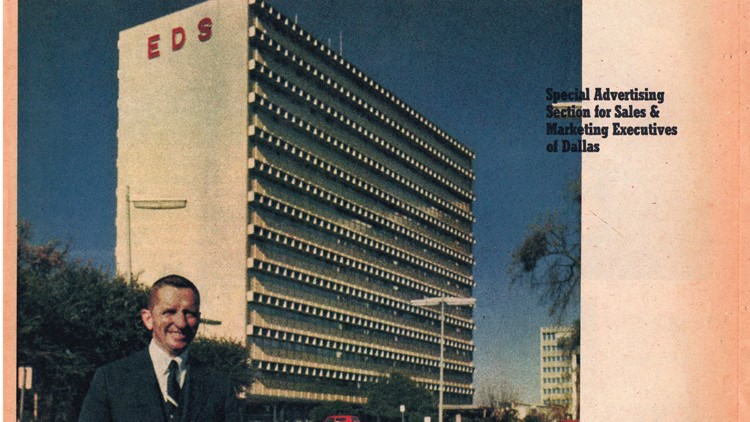This story has been updated throughout.
H. Ross Perot, the colorful, self-made Texas billionaire who twice ran for president, has died. He was 89.
Perot, whose 19% of the vote in 1992 stands among the best showings by an independent candidate in the past century, died early Tuesday at his home in Dallas surrounded by his devoted family, family spokesman James Fuller said.
Perot rose from Depression-era poverty to become one of the nation's richest men. As a boy in Texarkana, Texas, Perot delivered newspapers from the back of a pony. He earned his billions in a more modern way, however.
After attending the U.S. Naval Academy and becoming a salesman for IBM, he went his own way — creating and building Electronic Data Systems Corp., which helped other companies manage their computer networks.
He had founded EDS in 1962 and sold control of it to General Motors for $2.5 billion in 1984. He later founded another company, Perot Systems.
"Ross Perot epitomized the entrepreneurial spirit and the American creed," said President George W. Bush in a written statement. "He gave selflessly of his time and resources to help others in our community, across our country, and around the world."
Dallas Mayor Eric Johnson called Perot a "philanthropist" who worked to improve the lives of the city and nation.
“We have lost a true Dallas icon," Johnson said in a statement. "He personified the American dream and will be sorely missed."
Texas Gov. Greg Abbot praised his philanthropic efforts. "His charitable work and his support of the United States Military and its veterans will forever be remembered," Abbott said in a written statement.
Perot's children donated $50 million in honor of their parents to the Perot Museum of Nature and Science, which opened in 2012 outside downtown Dallas.
"He wanted for this city and state an educated, innovative workforce and saw the Perot Museum of Nature and Science as one expression of that. For that, we remain grateful," said Linda Silver, Eugene McDermott chief executive officer of the museum.
"His legacy as leader, independent thinker, technological trailblazer and American patriot will endure and continue to serve as inspiration in fulfilling our mission," Silver said in a written statement.

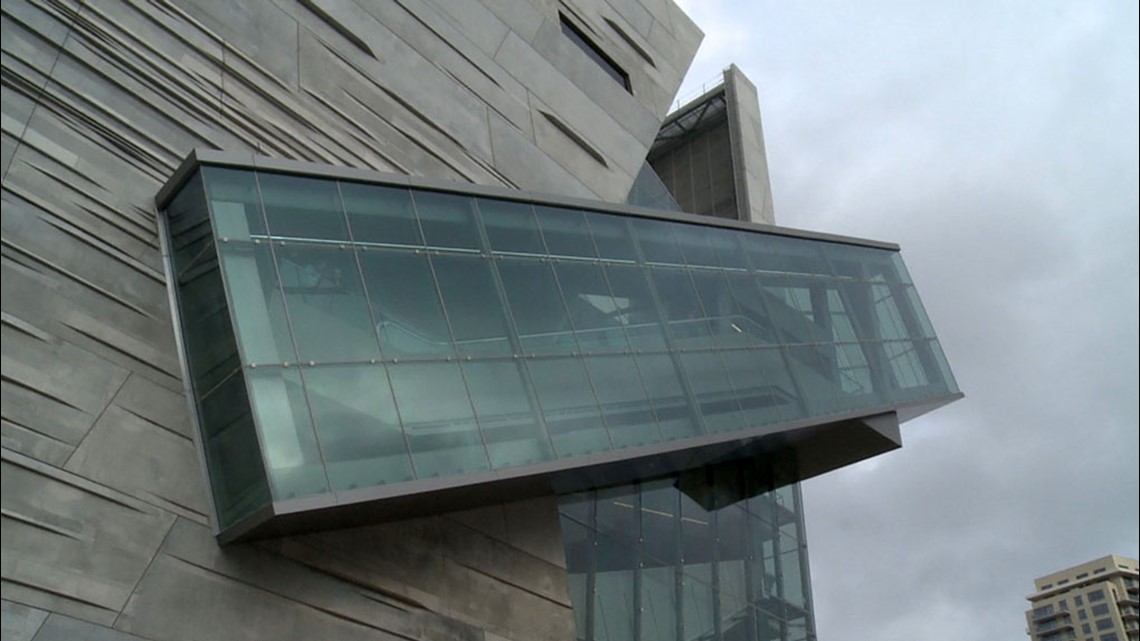
Presidential hopeful
Perot's wealth, fame and confident prescription for the nation's economic ills propelled his 1992 campaign against President George H.W. Bush and Democratic challenger Bill Clinton.
Some Republicans blamed him for Bush's loss to Clinton as Perot garnered the largest percentage of votes for a third-party candidate since former President Theodore Roosevelt's 1912 bid.
During the campaign, Perot spent $63.5 million of his own money and bought 30-minute television spots. He used charts and graphs to make his points, summarizing them with a line that became a national catchphrase: "It's just that simple."
Perot's second campaign four years later was far less successful. He was shut out of presidential debates when organizers said he lacked sufficient support.
He got just 8% of the vote, and the Reform Party that he founded and hoped to build into a national political force began to fall apart.
However, Perot's ideas on trade and deficit reduction remained part of the political landscape. He blamed both major parties for running up a huge federal budget deficit and allowing American jobs to be sent to other countries.
The movement of U.S. jobs to Mexico, he said, created a "giant sucking sound."
Perot continued to speak out about federal spending for many years. In 2008, he launched a website to highlight the nation's debt with a ticker that tracked the rising total, a blog and a chart presentation.
U.S. Sen. Ted Cruz (R-Texas) said Perot changed politics.
"A fierce patriot, Ross fought for what he believed in, and his national grassroots movement changed politics forever," Cruz said in a written statement.
PHOTOS: Ross Perot through the years
Humble beginnings
Henry Ross Perot was born in Texarkana on June 27, 1930. His father was a cotton broker; his mother a secretary. Perot said his family survived the Depression relatively well through hard work and by managing their money carefully.
Young Perot's first job was delivering papers in a poor, mostly black part of town from his pony, Miss Bee. When the newspaper tried to cut his commission, he said he complained to the publisher — and won. He said that taught him to take problems straight to the top.
From Texarkana, Perot went to the U.S. Naval Academy even though he had never been on a ship or seen the ocean. After the Navy, Perot joined International Business Machines in 1955 and quickly became a top salesman. In his last year at IBM, he filled his sales quota for the year in January.
In 1962, with $1,000 from his wife, Margot, Perot founded Electronic Data Systems. Hardware accounted for about 80% of the computer business, Perot said, and IBM wasn't interested in the other 20%, including services.
Many of the early hires at EDS were former military men, and they had to abide by Perot's strict dress code — white shirts, ties, no beards or mustaches — and long workdays. Many had crew cuts, like Perot.
The company's big break came in the mid-1960s when the federal government created Medicare and Medicaid, the health programs for seniors, the disabled and the poor. States needed help in running the programs, and EDS won contracts — starting in Texas — to handle the millions of claims.
EDS first sold stock to the public in 1968, and overnight, Perot was worth $350 million. His fortune doubled and tripled as the stock price rose steadily.
In 1984, he sold control of the company to General Motors Corp. for $2.5 billion and received $700 million in a buyout. In 2008, EDS was sold to Hewlett-Packard Co.
Perot went on to establish another computer-services company, Perot Systems Corp. He retired as CEO in 2000 and was succeeded by his son, Ross Perot Jr. In 2009, Dell Inc. bought Perot Systems.
In September 2011, Forbes magazine estimated Perot's wealth at $3.5 billion and ranked him No. 91 on its list of richest Americans.
Freeing POWs
During the Nixon administration that Perot became involved in the issue of U.S. prisoners of war in Southeast Asia. Perot said Secretary of State Henry Kissinger asked him to lead a campaign to improve treatment of POWs held in North Vietnam.
Perot chartered two jets to fly medical supplies and the wives of POWs to Southeast Asia. They were not allowed into North Vietnam, but the trip attracted enormous media attention.
After their release in 1973, some prisoners said conditions in the camps had improved after the failed missions.
In 1979, the Iranian government jailed two EDS executives and Perot vowed to win their release.
"Ross came to the prison one day and said, 'We're going to get you out,'" one of the men, Paul Chiapparone, told The Associated Press. "How many CEOs would do that today?"
Perot recruited retired U.S. Army Special Forces Col. Arthur "Bull" Simons to lead a commando raid on the prison. A few days later, the EDS executives walked free after the shah's regime fell and mobs stormed the prison. Simons' men sneaked the executives out of the country and into Turkey.
The adventure was recalled in Ken Follett's best-selling book "On Wings of Eagles" and a TV miniseries.
In later years, Perot pushed the Veterans Affairs Department to study neurological causes of Gulf War syndrome, a mysterious illness reported by many soldiers who served in the 1991 Persian Gulf war. He scoffed at officials who blamed the illnesses on stress — "as if they are wimps" — and paid for additional research.
Perot received a special award from the VA for his support of veterans and the military in 2009.

